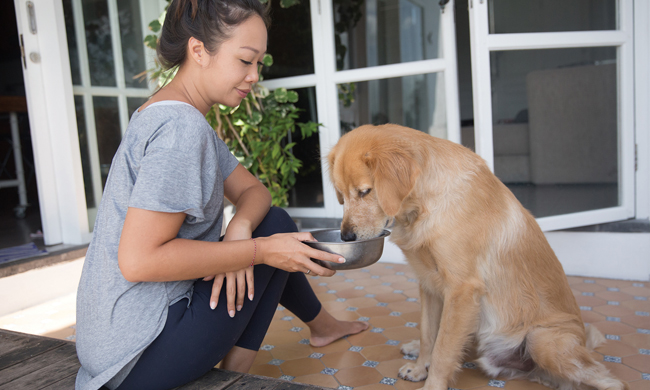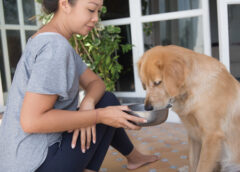
(Family Features) Extreme temperatures and booming sounds can have big impacts on pets.
With record-breaking heat across much of the nation, the experts at Freshpet are helping pet parents with these tips to help keep their pets healthy and safe this summer.
Heat
Heat stroke can occur quickly in dogs. Without the ability to sweat the same way humans do, it’s important for pet parents to understand ways to cool their pets down when temperatures rise and how to avoid common mistakes to keep their pets safe.
“Just because we can manage the heat and humidity, doesn’t mean our pets can,” said Dr. Aziza Glass, Freshpet’s expert veterinarian. “Our pets are vulnerable to temperatures over 80 F. However, there are things we can do to keep our pets safe and protected from heat-related injuries and some may come as a surprise.”
- Limit time outdoors: While outdoor activities are typically recommended for pets, their inability to sweat the same way humans do can cause them to heat up quickly. Limit walks to early morning or after the sun sets and stay indoors as much as possible the rest of the day.
- Fill their water bowls: Just like humans, clean water is essential for helping pets manage the heat. Cool water can help cool down your pet’s body temperature. Moisture-rich fresh food like options from Freshpet – made with 100% farm-raised chicken, beef or fish and all-natural fruits and veggies – can also help with hydration.
- Avoid shaving your pet: While summer cuts for long-haired dogs are OK, shaving your pet can expose his or her skin to harmful sun damage and cause overheating more quickly.
Glass recommends pet parents educate themselves on how to recognize heat stroke. Heavy panting, drooling, high body temperature, increased heart rate and fatigue are some signs of heat stroke in dogs.
“If you believe your dog is having a heat stroke, bring him or her indoors immediately to help cool down,” she said. “A common mistake is putting the pet in a cold ice bath. That can actually shock the system and cause quick changes in blood pressure. Instead, soak a towel in room temperature water and wipe your dog down to start the cooling process. Afterwards, proceed immediately to your primary care veterinarian or closest emergency center.”
Fireworks
Booming sounds and crackling fireworks can send some pets into sensory overdrive. According to Glass, with an elevated ability to interpret sound frequencies audibly and physically, dogs’ sensitivities to loud noises means some celebrations can make for particularly anxious events. While some dogs hide under beds or jump fences to flee the sounds, there are ways to help make fireworks less stressful for canine companions.
- Create a calm environment: Be aware if you or your neighbors plan to launch fireworks. If so, create a space to help your dog deal with the noise. A sound machine, lavender oil on his or her collar and blankets can help.
- Remain indoors: Avoid taking your dog outside if you’re planning to view fireworks or set off your own. A dog’s first reaction may be to flee from the noise and search for a safe spot, placing him or her in more danger.
- Stay close: Pets feel less anxious when they feel safe. Make sure you or someone they feel safe with is by their side until the fireworks are over, offering comfort, treats and affection throughout the event.
For more summer safety tips for pets, visit Freshpet.com.
Photo courtesy of Getty Images
SOURCE:
Freshpet

Rebecca Jo is a mother of four and is a creative soul from Phoenix, Arizona, who also enjoys new adventures. Rebecca Jo has a passion for the outdoors and indulges in activities like camping, fishing, hunting and riding rollercoasters.


